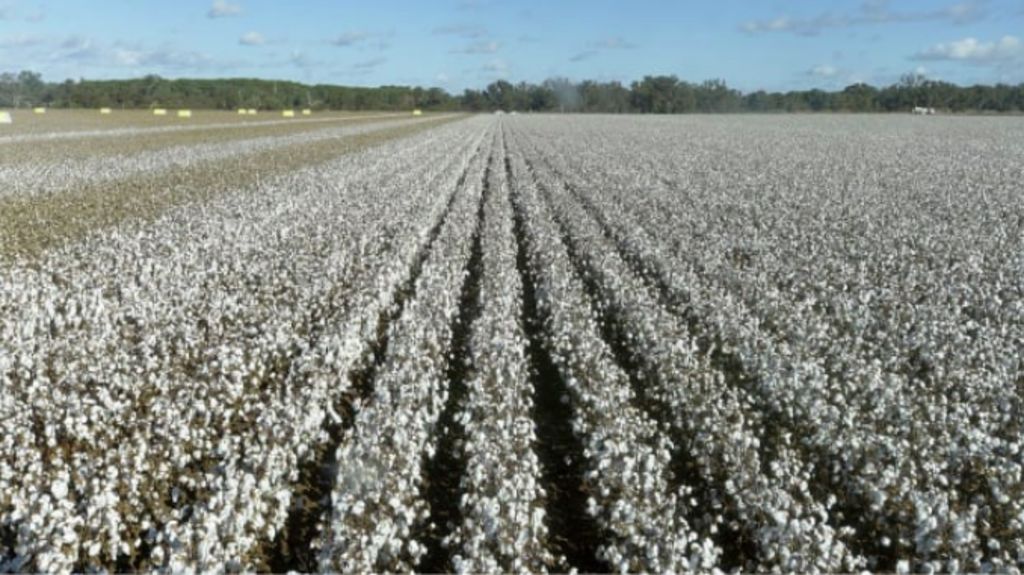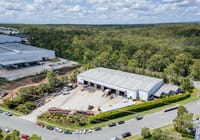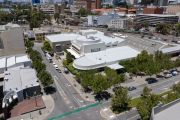
Cotton farmers put water entitlements on the market
Several cotton farming families in north-western NSW are offering all of their water entitlements for sale as anger about the dire state of the Murray-Darling river system, due to water overuse, drought and pollution, builds.
Almost 35 per cent of the Barwon-Darling river system’s available B-Class water entitlements as well as less than 1 per cent of total A and C-Class entitlements are being offered for sale by three farms. This equates to more than 30,000 megalitres.
CBRE Agribusiness agents Danny Thomas, Richie Inglis and Col Medway have been appointed to sell the portfolio.
Mr Thomas said the vendors, who are predominantly cotton farmers in the vicinity of Bourke, had been monitoring public sentiment and the growing commentary around the alleged causes of the degradation of the Barwon-Darling river system and were offering their water entitlements voluntarily.
“In doing so, the vendors have provided an opportunity for government, conservation groups or others to acquire the entitlements on commercial terms,” Mr Thomas said.
“They would retire their land from irrigation if they were appropriately incentivised to do so, and could focus on [sheep] grazing instead,” he said.
CBRE would not identify the vendors but it’s believed one of the farms belongs to Peter Harris, one of the state’s biggest cotton growers, who was currently facing charges over allegedly extracting water from the Barwon river when his pump meters were not working. Mr Harris had pleaded he was not guilty.
The farms’ offer to sell their water entitlements comes as the blame game over the degradation of the Murray-Darling river system intensifies. A recent study found that the health of Australia’s most important river system has deteriorated over the last 10 years despite $8.5 billion in federal government spending.
Earlier this year the poor state of the river system was put under the spotlight following the revelation of the mass death of up to a million fish near the town of Menindee.
The Barwon-Darling river flows from Mungindi past Walgett, Bourke and Wilcannia and empties into Menindee Lakes.
The proposal by these cotton farmers to sell their water entitlements and turn their attention to grazing follows the federal government’s $78 million payment to ASX-listed Webster LTD, the owner of large-scale cotton growing property Tandou at Menindee, south of Broken Hill, for all 21,901 megalitres of the farm’s water entitlements. Tandou then decommissioned their irrigation system and converted the 79,000-hectare property into a dorper lamb business.
But the government buyback of water entitlements is currently under heavy scrutiny. The price paid for the water at Tandou, which came about after an unsolicited approach from Webster, has been called into question for costing almost double the original valuation.
Shaun Hendy, director of agribusiness valuations at Colliers, said that given the current shortage, water markets were trading at record highs in many areas.
“We are seeing irrigators sell surplus water. Before water trading became available it was difficult to assess the value of water in use,” Mr Hendy said.
“It has helped the development of a more efficient irrigation industry as irrigation water users now have a benchmark against which they can assess decisions to invest, such as buying more water to increase production, weighing up the cost of water use efficiency schemes that increase production, which may potentially create a surplus of water resource that is available to sell or alternatively buy another irrigation farm.”
He said water values were expected to retreat to more sustainable levels when the water cycle returns to a level of longer-term norms.











